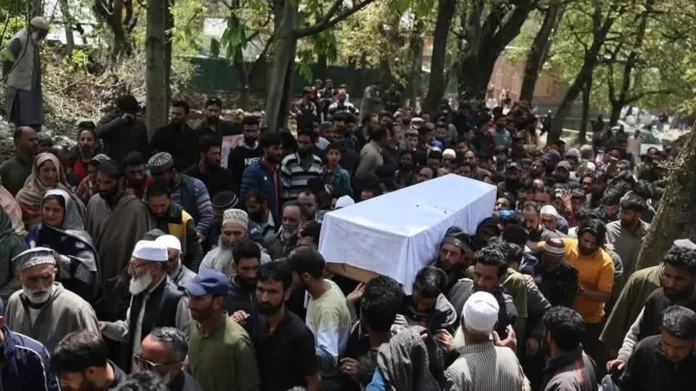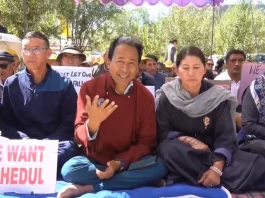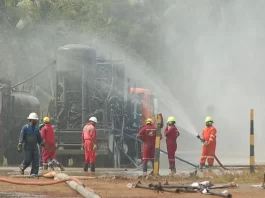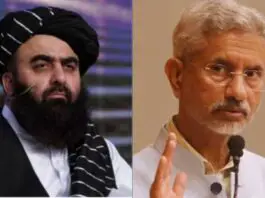
The recent attack in Pahalgam was not just a terror strike—it was a stress test for India’s Kashmir strategy. It targeted more than civilians; it targeted confidence, peace, and the socio-economic lifeline of the valley: tourism. And yet, in the shadow of grief, something shifted. Local Kashmiris opened mosques to shelter tourists. They observed a spontaneous bandh. Their statements on national TV rejected violence and called for calm. This is more than symbolic—it is a game-changer.
But it also changes the stakes. As India moves to neutralize those responsible, it must do so smartly—not just with strength, but with precision and moral clarity. The battle is no longer just against foreign terrorists and their local collaborators; it is also to protect and win back hearts and minds. Let the enemies of Kashmiriyat be isolated, not its people.
Who Must Be Targeted—and Who Must Be Protected
Security operations must now be recalibrated. The enemy must be clearly defined, and equally, those who must be protected must be reaffirmed. This includes: –
- Foreign Terrorists (FTS) operating in Kashmir under groups like TRF and Lashkar-e-Taiba.
- Local militants aiding these FTS are often known to communities and may operate from within.
- Overground Workers (OGWS)—the enablers who provide logistics, intelligence, hideouts, or propaganda support.
Operations must be strategic and precise. The goal should not be large-scale operations that disrupt local life and feed the enemy narrative. Instead, the focus should be on precise elimination, public communication, and coordinated community outreach. This approach will not only neutralize the threat but also ensure that people’s daily lives are not unduly disrupted.
The Hidden Network: Identifying OGWS
OGWS are not uniformed fighters. They’re pony owners, tea stall operators, drivers, phone shop workers—people who blend in with the crowd but act as eyes and ears for terrorists. In the Pahalgam attack, it is highly plausible that locals in the vicinity, especially commercial operators, knew of militant movements.
Security agencies must now go village by village, mohalla by mohalla, using both technical and human intelligence to: –
- Map the social and economic networks around recent attacks.
- Interrogate without alienating—offering legal leniency in exchange for cooperation.
- Deploy undercover teams posing as civilians, tourists, and traders to extract real-time information.
We must break this support chain, but not break the trust of the wider population. Precision in action and restraint in rhetoric are essential.
The Role of the Community—and the Urgent Appeal
There is an urgent need for the Chief Minister and the Lieutenant Governor to reach out to the Kashmiri diaspora and local communities jointly. The message must be clear: You are not suspects. You are partners. Terror will be defeated with your help, not over your heads.
Let this be said loudly and without ambiguity: the people of Kashmir are not the problem. They are the solution. This includes: –
- Encouraging Kashmiris to share any information about foreign militants hiding in the region.
- Protecting those who come forward from retaliation through anonymity, relocation, or legal support.
- Creating secure digital and physical channels for whistleblowing.
Winning the Moral Battle: Tourism as Resistance
Terrorists wanted tourists to flee. That must not happen.
The government must immediately: –
- Launch a national tourism reassurance campaign, encouraging Indians to keep visiting Kashmir.
- Offer insurance coverage and incentives to travelers and tour operators.
- Ensure that security cover around tourist zones is tight, visible, and friendly.
Let tourism become an act of moral defiance. When Indian tourists walk the streets of Srinagar and Pahalgam without fear, it sends a message more substantial than any airstrike.
The Youth Must Lead the Rejection of Militancy
There is a generation in Kashmir that has seen nothing but conflict. And yet, these youth have more access than ever to education, technology, and the outside world. Many of them now want jobs, not jihad.
They must be encouraged to take moral leadership: –
- Launch campaigns across colleges and universities rejecting violence.
- Use local influencers and social media voices to challenge the narrative of “freedom through fear.”
- Provide platforms for youth-led community security initiatives—volunteering, civil watch groups, and anonymous tip networks.
- When the youth lead, the future follows.
Political Cohesion Is Critical—Governance Must Unite
It is troubling that the elected Chief Minister is not included in key security meetings, while the Lieutenant Governor takes the lead on ground decisions. This creates a perception of disconnect—and worse, disempowerment.
This must change
The CM, by electoral legitimacy, must be given a central role in the security and recovery plan.
- A Joint Operations Council should be formed, including the LG, CM, DGP, senior military commanders, and intelligence heads.
- All political parties, regardless of ideology, must publicly condemn the attack and commit to a united front against terrorism.
- Divided leadership emboldens the enemy. A unified voice—across party lines—is a strategic and symbolic necessity.
Avoiding Alienation: Suggestions to Stay the Course
India must defeat terror without losing the people of Kashmir. Here’s how we ensure that: –
- Choose Words Carefully—Don’t Paint Everyone With the Same Brush.
- Leaders and media must avoid broad, damaging labels. To describe attackers, use specific terms like “terrorist” or “militant”—not “Kashmiris” or “locals”—to describe them.
- Most Kashmiris want peace. Respecting this distinction helps maintain unity and public trust.
- Target the Guilty, Not the Innocent – No Blanket Crackdowns. Security forces must avoid collective punishment. House-to-house searches or mass detentions breed resentment and alienation. Instead, operations must be focused, evidence-driven, and based on solid intelligence to prevent harming innocent families.
- Don’t Let the Economy Collapse – Support Those Who Lose Income. Tourism drives the Valley’s economy. Attacks cause cancellations, empty hotels, and job losses. The government should respond with emergency relief: compensation for losses, temporary employment schemes, and tax breaks for small businesses.
- Keep the Message Real and Responsible—Don’t Let Hate Hijack Headlines. Like the locals who sheltered tourists, the media must avoid communal rhetoric and focus on facts, unity, and heroism. Responsible reporting helps keep national sentiment constructive and prevents further division.
- Respect the Faith That United Us – Work With Religious Leaders. After the attack, mosques opened to tourists in distress. This humane gesture must be recognized and encouraged. Engage imams and clerics in spreading the message of peace, rejection of violence, and unity through Friday sermons and community outreach.
Let Kashmiriyat Win
Terrorists want fear to rule the Valley. But in the wake of violence, the people of Kashmir offered shelter to strangers. They rejected the bullet and embraced brotherhood. That’s not just news—it’s hope. And hope must now be turned into policy.
The next Kashmir chapter must be written with cooperation, courage, and clarity. Let security forces act with resolve, not vengeance. Let tourists return as ambassadors of peace. Let youth step forward as agents of change. And let governance, both elected and appointed, act as one.
In this long conflict, we must never forget the goal: not just to defeat terror, but to ensure that terror never again defeats Kashmiriyat.





